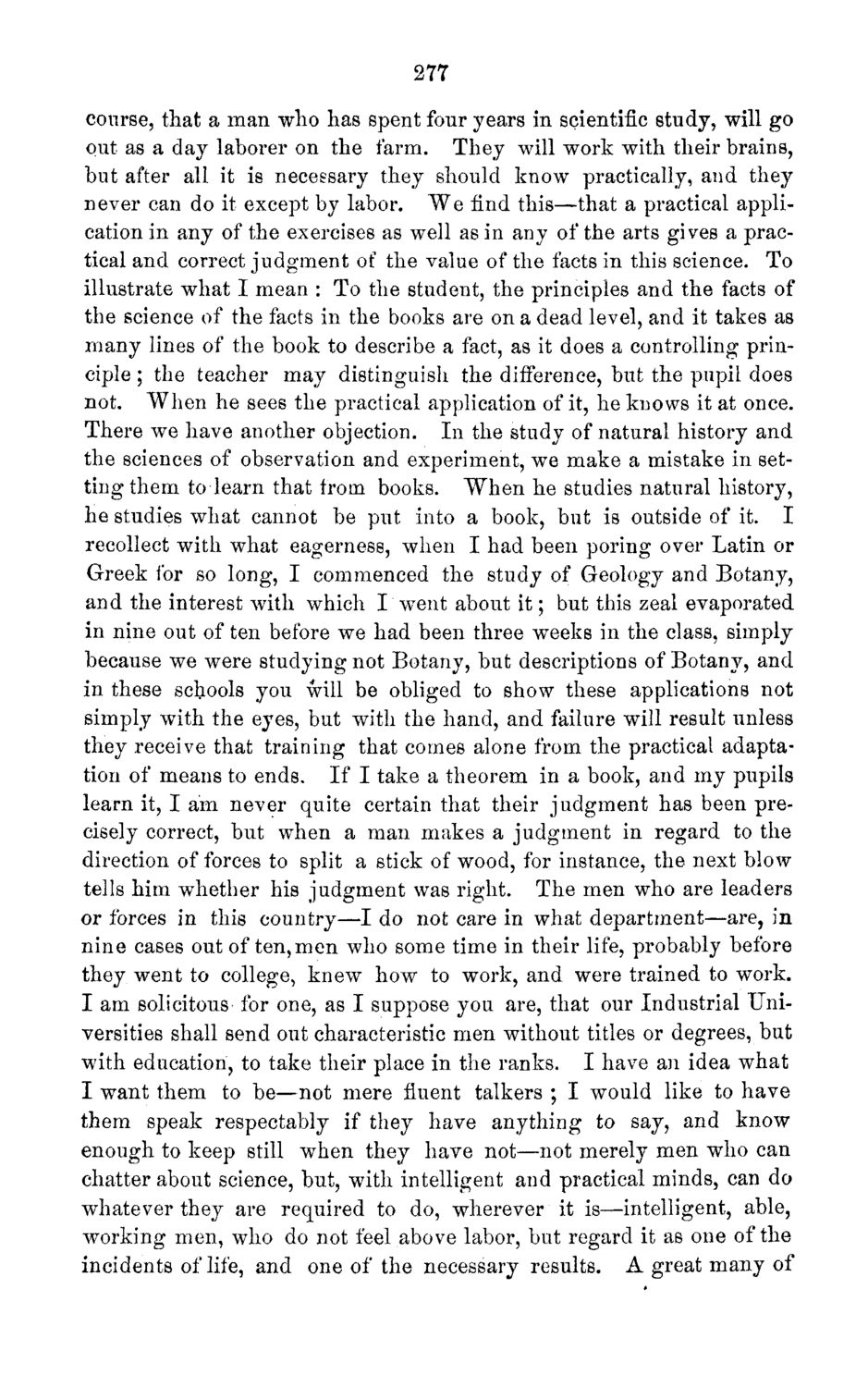| |
| |
Caption: Board of Trustees Minutes - 1871
This is a reduced-resolution page image for fast online browsing.

EXTRACTED TEXT FROM PAGE:
277 course, that a man who has spent four years in scientific study, will go put as a day laborer on the farm. They will work with their brains, but after all it is necessary they should know practically, and they never can do it except by labor. We find this—that a practical application in any of the exercises as well as in any of the arts gives a practical and correct judgment of the value of the facts in this science. To illustrate what I mean : To the student, the principles and the facts of the science of the facts in the books are on a dead level, and it takes as many lines of the book to describe a fact, as it does a controlling principle ; the teacher may distinguish the difference, but the pupil does not. When he sees the practical application of it, he knows it at once. There we have another objection. In the study of natural history and the sciences of observation and experiment, we make a mistake in setting them to learn that from books. When he studies natural history, he studies what cannot be put into a book, but is outside of it. I recollect with what eagerness, when I had been poring over Latin or Greek for so long, I commenced the study of Geology and Botany, and the interest with which I went about it; but this zeal evaporated in nine out of ten before we had been three weeks in the class, simply because we were studying not Botany, but descriptions of Botany, and in these schools you will be obliged to show these applications not simply with the eyes, but with the hand, and failure will result unless they receive that training that comes alone from the practical adaptation of means to ends. If I take a theorem in a book, and my pupils learn it, I am never quite certain that their judgment has been precisely correct, but when a man makes a judgment in regard to the direction of forces to split a stick of wood, for instance, the next blow tells him whether his judgment was right. The men who are leaders or forces in this country—I do not care in what department—are, in nine cases out of ten, men who some time in their life, probably before they went to college, knew how to work, and were trained to work. I am solicitous for one, as I suppose you are, that our Industrial Universities shall send out characteristic men without titles or degrees, but with education, to take their place in the ranks. I have an idea what I want them to be—not mere fluent talkers ; I would like to have them speak respectably if they have anything to say, and know enough to keep still when they have not—not merely men who can chatter about science, but, with intelligent and practical minds, can do whatever they are required to do, wherever it is—intelligent, able, working men, who do not feel above labor, but regard it as one of the incidents of life, and one of the necessary results. A great many of
| |